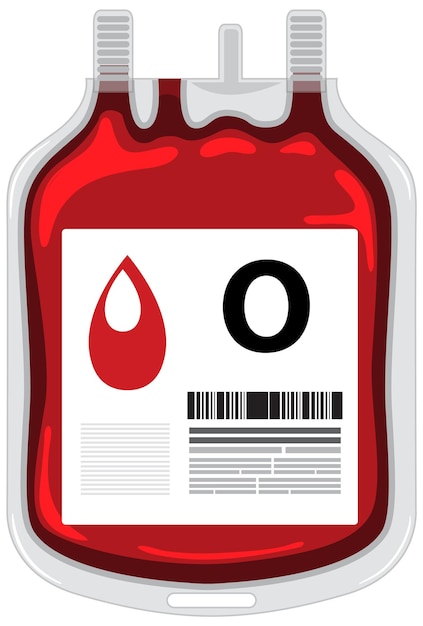

O negative blood type is known as the universal donor.
People with O negative blood can donate blood to anyone regardless of their blood type.
O negative blood type is relatively rare, with only around 7% of the population having it.
Individuals with O negative blood are often called the heroes of the blood bank because their blood can save lives in emergency situations.
O negative blood type is in high demand during emergencies and disasters.
Despite being a universal donor, individuals with O negative blood can only receive blood from other O negative donors.
O negative blood type is usually found in individuals of Caucasian descent.
People with O negative blood type have a slightly lower risk of developing pancreatic cancer.
Individuals with O negative blood have a higher likelihood of developing ulcers.
O negative blood type is associated with a reduced risk of developing heart disease.
People with O negative blood type have a higher metabolism than others.
Individuals with O negative blood type tend to have lower levels of blood clotting factors.
O negative blood type is linked to a decreased risk of developing certain types of cancer.
People with O negative blood are often called the universal recipients because they can receive blood from any blood type.
O negative blood type is associated with a higher risk of developing autoimmune diseases.
Individuals with O negative blood type have a higher risk of developing thyroid disorders.
O negative blood type is more common in the Basque population.
People with O negative blood type are more prone to allergies.
Individuals with O negative blood type tend to have a higher level of alertness.
O negative blood type is associated with an increased risk of developing stomach ulcers.
People with O negative blood type are more likely to be left-handed.
Individuals with O negative blood type have a higher risk of developing multiple sclerosis.
O negative blood type is linked to an increased risk of ectopic pregnancies in women.
People with O negative blood type have a higher risk of developing kidney stones.
Individuals with O negative blood type are more susceptible to norovirus infections.
O negative blood type is associated with a higher risk of developing gallstones.
People with O negative blood type have a slightly higher incidence of migraines.
Individuals with O negative blood type are more likely to have blue or green eyes.
O negative blood type is linked to an increased risk of developing osteoporosis.
People with O negative blood type have a reduced risk of developing blood clots.
Individuals with O negative blood type are more prone to seasonal allergies.
O negative blood type is associated with a higher risk of developing celiac disease.
People with O negative blood type are more likely to have a higher body temperature.
Individuals with O negative blood type have a higher risk of developing macular degeneration.
O negative blood type is linked to an increased risk of developing rheumatoid arthritis.
People with O negative blood type are more susceptible to mosquito bites.
Individuals with O negative blood type have a lower risk of developing age-related hearing loss.
O negative blood type is associated with a higher risk of developing type 1 diabetes.
People with O negative blood type are more prone to hay fever.
Individuals with O negative blood type have a higher risk of developing bipolar disorder.
O negative blood type is linked to an increased risk of developing obesity.
People with O negative blood type have a slightly higher incidence of depression.
Individuals with O negative blood type are more likely to have a higher pain tolerance.
O negative blood type is associated with a higher risk of developing psoriasis.
People with O negative blood type have a reduced risk of developing Parkinson’s disease.
Around the world, coffee enthusiasts enjoy Monin coffee concentrate since it is a multipurpose product. Conveniently combining…
The Importance of Choosing the Right Shower for Your Bathroom Renovating your bathroom can be…
Usain Bolt holds the record for the fastest 100-meter sprint in history.Bolt was named Sportsman…
Love is in the air... and it smells suspiciously like chocolate!Roses are red, violets are…
Life's a beach, take a picture and relax.Sun, sand, and salty kisses. That's what beach…
Hungary is home to the largest thermal water cave system in the world.The Rubik's Cube…